Protecting Your Home Against Insurance Claim Pitfalls: A Property Insurance Guide
Insurance claim denials can leave homeowners financially devastated when they need protection most. With Texas homeowners insurance rates increasing by an average of 23% since 2023, many property owners face tough coverage decisions while dealing with severe weather threats. The reality is that even when you faithfully pay premiums for years, one misstep in the claims process can result in a devastating denial. Understanding the common risks that lead to claim rejections is essential for protecting your investment and ensuring you receive the coverage you’re entitled to when disaster strikes.
Don’t let the complexities of insurance claims leave you high and dry. Reach out to JCE Law Group for guidance that can make all the difference. Give us a call at 504-754-5884 or contact us today to ensure your rights are protected and your claims are handled with the utmost care.

Texas Property Insurance Laws: What Every Homeowner Should Know
Texas property insurance laws provide important protections for homeowners, but they also come with strict requirements that must be followed. Under Texas Insurance Code Chapter 542, insurers must acknowledge, investigate, and pay valid claims within specific timeframes. The Texas Prompt Payment of Claims Act requires insurers to pay claims within 60 days after receiving all necessary information. However, insurers can still legally deny claims for various reasons, including policy exclusions, coverage limitations, missed deadlines, or perceived policyholder negligence. Many homeowners don’t realize that Texas law places the burden of proof primarily on them to demonstrate that damage falls under their policy terms. This means properly documenting damage maintenance history and following precise claim procedures is not just helpful—it’s essential to protecting your rights under Texas insurance laws.
Critical Timeframes and Deadlines in the Texas Insurance Claim Process
Understanding the timeline for filing and pursuing insurance claims is crucial for Texas homeowners. Missed deadlines are among the top reasons insurers deny otherwise valid claims. Here’s what you need to know about the timing of insurance claims in Texas:
-
Most Texas insurance policies require homeowners to report damage “promptly” or within a specific timeframe (often 30-60 days), but severe weather events may have even shorter windows—as brief as 14 days for some policies.
-
After a claim is filed, insurance companies must acknowledge your claim within 15 days and accept or reject it within 45 days under the Texas Prompt Payment of Claims Act.
-
If your claim is denied, you typically have only two years from the date of loss or denial to file a lawsuit—a timeframe that passes quickly when negotiating with insurers.
-
Many Houston homeowners aren’t aware that certain damage types have different reporting requirements—for example, wind and hail claims must be reported within one year in some policies, a significant reduction from the standard statute of limitations.
Navigating Property Insurance Disputes with Professional Support
When facing a property insurance dispute, knowledgeable legal representation can distinguish between a denied claim and a fair settlement. At JCE Law Group, we regularly see cases where homeowners who attempted to handle complex claims independently encountered unnecessary obstacles. Insurance companies have teams of adjusters and attorneys working to minimize payouts, creating an uneven playing field for individual homeowners. A property insurance lawyer can help level this imbalance by analyzing your policy for coverage that might not be obvious, documenting damage properly, challenging lowball estimates, and ensuring all communications with insurers are strategic and well-documented. When insurance companies recognize you have professional representation, they often approach claim negotiations differently, knowing their decisions may face skilled legal scrutiny.
Common Pitfalls That Lead to Claim Denials for Texas Homeowners
Understanding the most frequent reasons for denied property insurance claims can help you avoid these pitfalls. Many denials occur not because coverage doesn’t exist, but because of preventable mistakes in the claims process or pre-existing conditions that weren’t addressed. Being aware of these common issues can significantly improve your chances of claim approval.
Insufficient Documentation and Evidence
One of the most common reasons for claim denials is inadequate damage documentation. Insurance companies require clear evidence showing the extent of damage, when it occurred, and what caused it. We’ve seen countless claims denied because homeowners failed to take comprehensive photos immediately after the damage occurred or didn’t keep detailed records of all communication with the insurance company. When working with clients, we emphasize the importance of documenting everything—from the initial damage to every conversation with adjusters—as this documentation often becomes the determining factor in disputed claims.
Maintenance-Related Claim Denials and How to Prevent Them
Insurance companies frequently deny claims based on alleged homeowner negligence or lack of maintenance. According to data from the Texas Department of Insurance, approximately 30% of homeowner insurance claims are denied at least in part due to maintenance-related issues. This is particularly relevant in the Houston area, where humidity and severe weather can accelerate home deterioration if not properly addressed. Understanding exactly what maintenance your insurer expects you to perform can be the difference between a paid claim and a denial letter.
Regular Maintenance Requirements That Affect Claims
Insurance policies typically require homeowners to perform reasonable maintenance to prevent damage. This includes regular roof inspections, prompt repairs of minor leaks, maintaining functioning gutters, addressing foundation issues promptly, and controlling moisture to prevent mold. Many homeowners are surprised to learn that even small maintenance oversights can void coverage for major damage. For example, suppose a small roof leak was neglected and later resulted in significant water damage during a storm. In that case, the insurer may deny coverage for the entire claim based on failure to maintain the property. Documenting all maintenance and repairs with receipts and photos creates a maintenance history that can be invaluable if your insurer questions whether you’ve properly cared for your property.
Policy Exclusions and Coverage Limitations That Surprise Homeowners
Many homeowners discover coverage gaps only after filing a claim. With Texas insurance premiums rising dramatically, some policyholders are unknowingly accepting policies with more exclusions and limitations to keep premiums affordable. Understanding exactly what your policy covers—and what it doesn’t—is essential to avoid surprises when you need to file a claim.
Hidden Exclusions in Standard Texas Policies
Standard homeowner policies in Texas often exclude coverage for flood damage, mold remediation, earth movement, foundation issues, and damage from certain types of water intrusion. Many policies also contain anti-concurrent causation clauses, which can void coverage if an excluded peril contributes to the damage—even if a covered peril was the primary cause. For example, if wind (covered) damages your roof during a storm, but flooding (excluded) also occurs, the insurer might deny the entire claim. Some policies also include percentage deductibles for hurricane damage rather than fixed-dollar amounts, meaning your out-of-pocket costs could be significantly higher than expected. Reviewing your policy annually with a qualified professional can help identify these exclusions before they become problematic.
Strategic Communication with Insurance Adjusters
How you communicate with insurance adjusters can significantly impact your claim’s outcome. Insurance adjusters are trained to find reasons to minimize or deny claims, and they may use your statements against you. Understanding how to effectively communicate with adjusters without compromising your claim is a critical skill for Houston homeowners.
What Not to Say to Your Insurance Adjuster
Certain statements can undermine your claim, even when made innocently. Avoid speculating about the cause of damage, admitting uncertainty about when damage occurred, suggesting the damage might be pre-existing, or accepting blame for any aspect of the situation. Never say you’re satisfied with the initial assessment or offer before thoroughly reviewing it. Don’t discuss repairs you’ve made yourself without proper documentation, and refrain from mentioning previous claims unless specifically asked. Remember that adjusters often record conversations, so consider having your own recording or note-taking system in place (with proper disclosure according to Texas law) to ensure accurate documentation of what was discussed.
Frequently Asked Questions
1. What should I do if my Texas property insurance claim was denied?
If your property insurance claim is denied, first request a detailed written explanation of the denial. Review your policy carefully to understand if the denial aligns with your coverage terms. Gather additional evidence that supports your claim, including photos, videos, witness statements, and contractor assessments. Consider filing a formal appeal with your insurance company, following their specific appeal procedures. If the denial persists, consulting with a property insurance lawyer in Houston may be necessary to evaluate whether the denial was justified under Texas law and your policy terms.
2. How can Houston homeowners prepare for the insurance claim process before damage occurs?
Proactive preparation can significantly improve claim outcomes. Create a home inventory with photos and videos of all rooms, valuables, and structural elements, updating it annually. Store digital copies of this inventory in cloud storage. Review your policy annually to understand coverage limits and exclusions. Document all home improvements and maintenance with receipts and photos. Install weather monitoring systems and take preventative measures your insurer recommends. Keep contact information for contractors, public adjusters, and property insurance attorneys accessible. Finally, understand your policy’s claim reporting deadlines and procedures before an emergency occurs.
3. What maintenance issues most commonly lead to insurance claim denials in Houston?
In Houston’s climate, the most common maintenance-related claim denials involve roof neglect, unaddressed water intrusion, foundation issues, mold growth from unrepaired leaks, and pest infestations. Insurance companies frequently deny claims when they can attribute damage to gradual deterioration rather than sudden, accidental events. To avoid these denials, schedule regular roof inspections (especially after storms), address small leaks immediately, maintain functional gutters and drainage systems, watch for foundation warning signs, and control indoor humidity levels. Document all maintenance with dated receipts and photos to prove you’ve properly maintained your property.
4. How long do Texas property insurance disputes typically take to resolve?
The timeline for resolving property insurance disputes varies significantly based on complexity and approach. Simple claim disputes may resolve in 1-3 months through internal appeals. More complex disputes requiring legal intervention typically take 6-18 months. If litigation becomes necessary, the process can extend to 1-3 years before reaching resolution. Factors affecting timeline include damage complexity, policy language clarity, quality of your documentation, and whether professional representation is involved. Working with a property insurance attorney often streamlines the process by ensuring proper procedures are followed and strategic approaches are employed from the beginning.
5. When should I consider hiring a Houston property insurance attorney instead of handling a claim myself?
Consider hiring a property insurance attorney when your claim involves significant damage (typically exceeding $10,000), if your claim has been denied or severely underpaid, if the insurer alleges fraud or misrepresentation if there are complex causation issues (such as multiple factors contributing to damage), or if the insurer is delaying resolution beyond statutory timelines. Attorney involvement is also advisable when you receive a reservation of rights letter, when coverage disputes involve policy interpretation questions, or when the insurance company’s adjuster seems hostile or dismissive. Most property insurance attorneys offer free initial consultations to evaluate whether your situation warrants legal representation.
Work with a Property Insurance Lawyer
Working with a property insurance lawyer can provide significant advantages when facing insurance claim challenges. A skilled attorney understands the nuances of Texas insurance law, policy language, and how to effectively counter common denial tactics. They can analyze your policy to identify coverage you might not recognize, properly value your claim, and ensure all documentation meets legal standards. Legal representation often changes how insurance companies approach negotiations, as they recognize the increased likelihood of litigation if they handle the claim improperly. If you’re experiencing difficulties with a property claim, consider consulting with a property insurance lawyer who can evaluate your situation and advise on the most effective path forward, whether that involves policy interpretation, claim documentation, negotiation strategies, or pursuing legal remedies when necessary.
Don’t let the intricacies of insurance claims leave you in a bind. Connect with JCE Law Group for guidance to navigate these waters smoothly. Dial 504-754-5884 or contact us today to ensure your claims are managed precisely and carefully.


